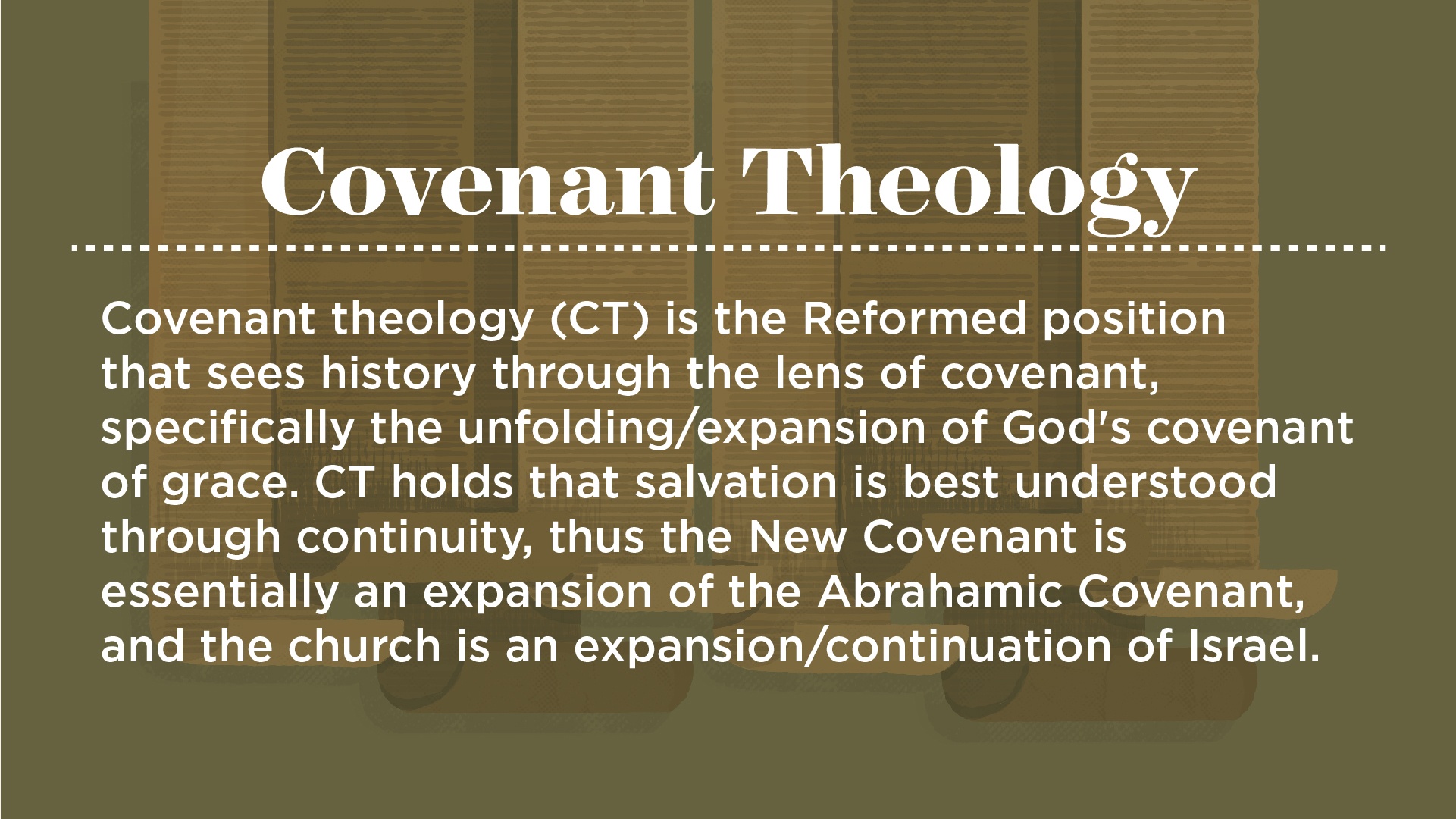
Today I start a mini-series comparing and contrasting covenantalism and dispensationalism. This first post gives an overview of what covenantalism is. Several people have asked me for something like this recently, and I had a hard time of finding resources that I thought really gave a 30,000 foot overview of it in a way that was clear and charitable (although I do like this short post by Ligon Duncan). So this is my attempt at that.
Tomorrow I will do the same for dispensationalism. Then Thursday I’ll do a post that lists some practical differences between the two. If you can’t wait, or you’d rather listen, all three posts are in a single sermon I preached at my church recently (here at this link). In the sermon, I end by looking at Galatians 6:16, which I’ll leave out of these posts.
Both covenantalism and dispensationalism are approaches to understanding the Bible’s story-line. I understand them as glasses one wears when reading the Bible, and I don’t mean that in a negative way. Having read the Bible repeatedly, people are expected to develop an understanding of the larger story it tells, and that understanding helps them interpret the parts that it contains, and lets them look back and see themes develop across the pages of scripture. Both covenantalism and dispensationalism are approaches to understanding what story the Bible is telling, and how it is telling it. Thus, there are a lot of similarities between covenantalism and dispensationalism, and I think that often times the differences between the two can be overblown or exaugurated. But I’ll save that for Thursday.
I define covenantalism this way:

Covenant theology (CT) is the Reformed position that sees biblical history through the lens of covenant, specifically the unfolding/expansion of God’s covenant of grace. CT holds that salvation is best understood through continuity, thus the New Covenant is essentially an expansion of the Abrahamic Covenant, and the church is an expansion/continuation of Israel.

CT developed as system in the 1600’s. It’s development was driven in England and Scotland by the Puritans, and it is reflected in the Westminster standards and the WCF (Westminster Confession of Faith). Thus today CT is seen in Presbyterian churches, and lives on through seminaries like RTS, and Westminster. Leading covenant theologians today include Sinclair Ferguson, Ligon Duncan, and Michael Horton.

In a nutshell, CT is called “covenant theology” because it views the Bible through the lens of three covenants. The covenant of redemption (made between the persons of the Trinity, before time), the covenant of works (made between God and Adam, before the fall), and the covenant of grace (made between God and fallen mankind). The covenant of works reveals that God cannot be approached through works (as we fail to keep it), while the covenant of grace reveals that salvation is a gift God gives through faith. These three covenants give the Bible’s story its continuity and progression.
These covenants all find their fulfillment in the person of Jesus Christ, who of course is a party to the covenant of redemption, fulfills the covenant of works, and provides the covenant of grace.
In this system, the biblical covenants (Abrahamic, Mosaic, Davidic, New Covenant) are seen as progressions and expansions of the covenant of grace. I found these pictures–from O. Palmer Robertson–helpful:

Displaying the covenants this way indicates that each subsequent covenant more fully reveals the New Covenant, which itself is revealed by Christ. How do these relate to the the covenants of works or grace?

Each covenant in time is an expansion or progression of the covenant of grace, as the object of saving faith is more clearly revealed. Meanwhile, the covenant of works is operating in the background, reminding us of the impossibility of approaching God by our own efforts.
In CT, the overarching story is the progression of revelation toward Jesus, who fulfills all covenantal promises. The church stands in the long line of faithful people who have been recipients through faith of the covenant of grace, and thus the church is rightly identified as believing Israel.
Tomorrow we will get an overview of dispensationalism.

